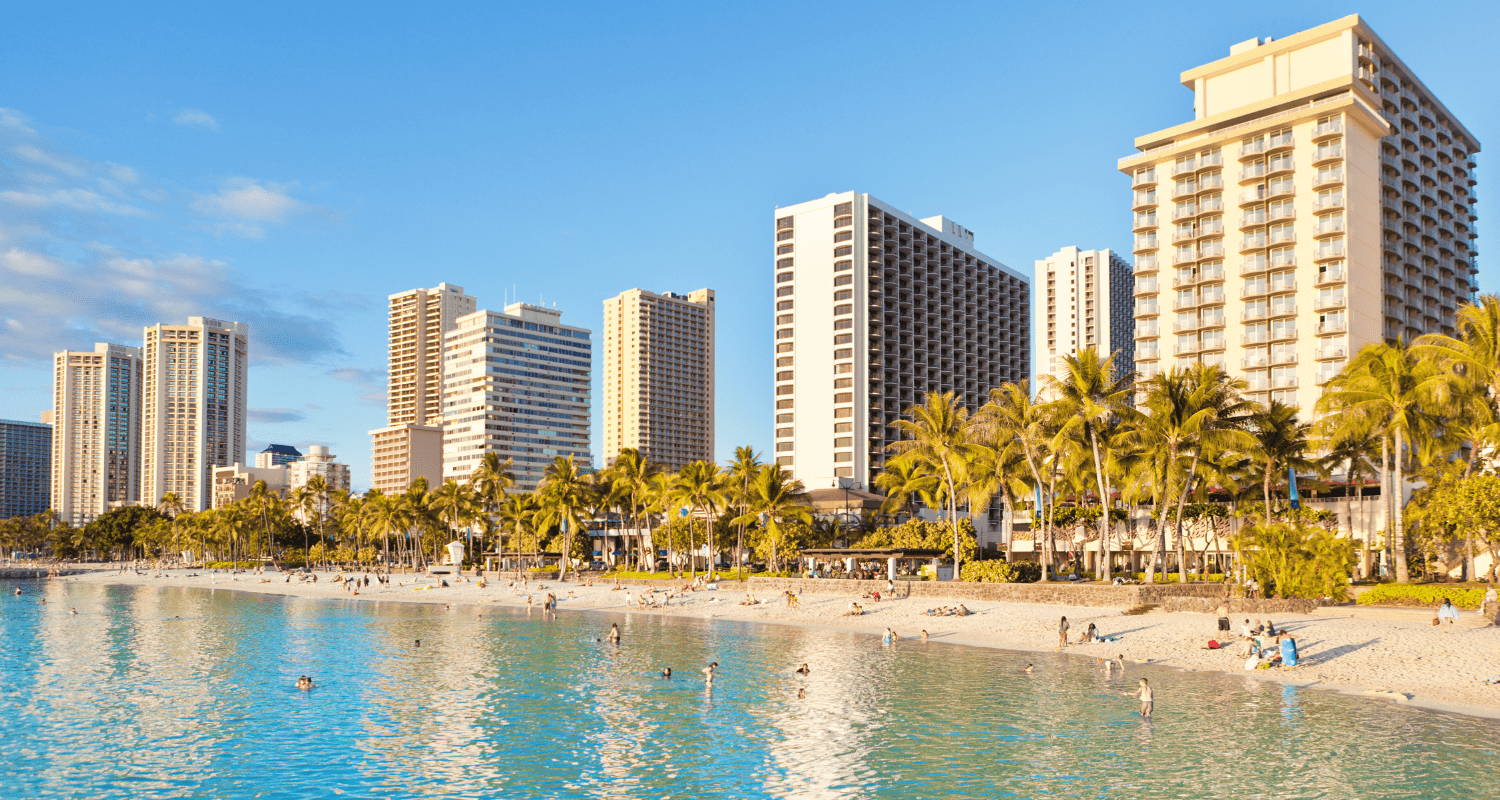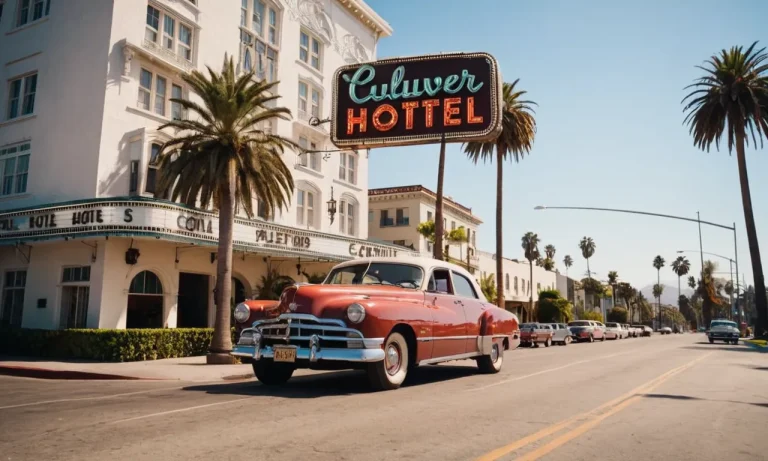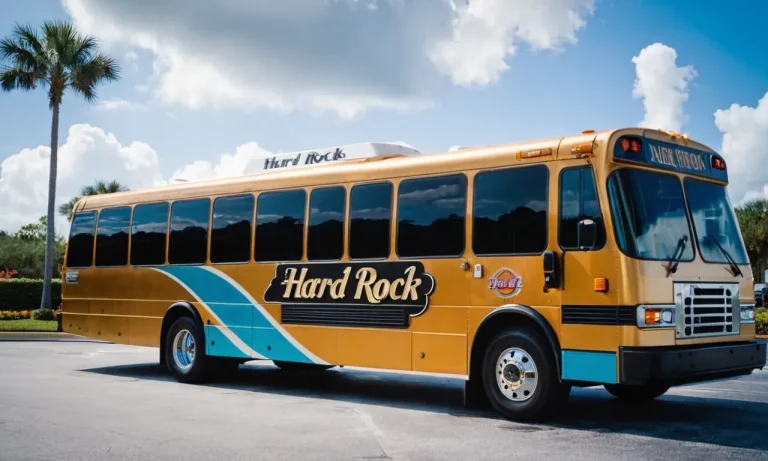How Many Hotels Are in the United States? A Comprehensive Guide
Imagine a vast landscape dotted with towering skyscrapers, bustling cities, and picturesque small towns – this is the United States, a nation that boasts an incredible array of hotels catering to every taste and budget.
If you’re short on time, here’s a quick answer to your question: According to recent estimates, there are approximately 54,200 hotels and motels across the United States, offering a staggering 5.3 million guest rooms.
In this comprehensive article, we’ll delve into the fascinating world of hotels in the United States, exploring their distribution across different regions, the various types and categories, and the factors that contribute to the industry’s growth and diversity.
Whether you’re a curious traveler, a hospitality professional, or simply someone with a keen interest in the subject, this guide will provide you with a wealth of information and insights.
Regional Distribution of Hotels in the United States
The United States is a vast and diverse country, with a wide variety of hotel options spread across its different regions. From the bustling East Coast to the laid-back West Coast, and from the heartland of the Midwest to the warm and welcoming Southern states, each region offers its own unique blend of hospitality and accommodation experiences.
Let’s take a closer look at the regional distribution of hotels in the United States.
East Coast Hotels
The East Coast is a hub of activity, with major cities like New York, Boston, and Washington D.C. attracting millions of visitors each year. As a result, this region boasts a vast array of hotels, ranging from luxury resorts to budget-friendly options.
According to data from the American Hotel & Lodging Association, the East Coast accounts for a significant portion of the hotel industry in the US, with cities like New York City alone having over 600 hotels within its five boroughs.
West Coast Hotels
The West Coast is known for its stunning natural beauty, vibrant cities, and laid-back lifestyle. From the beaches of California to the towering peaks of the Pacific Northwest, this region offers a diverse range of hotel experiences.
Major cities like Los Angeles, San Francisco, and Seattle are home to numerous luxurious hotels, while smaller coastal towns and scenic destinations like Napa Valley and Aspen provide a more intimate and relaxed atmosphere.
According to Statista, the West Coast region accounts for around 20% of the total hotel properties in the United States.
Midwest Hotels
The Midwest region, often referred to as the heartland of America, is known for its friendly communities, rich cultural heritage, and diverse landscapes. From the bustling cities of Chicago and Minneapolis to the rolling hills of Wisconsin and the Great Lakes region, the Midwest offers a wide range of hotel options.
Many of the hotels in this region cater to business travelers, with major convention centers and corporate headquarters located in cities like Chicago and Detroit. However, the region also boasts charming bed and breakfasts, historic inns, and rustic lodges that cater to leisure travelers seeking a taste of the Midwest’s unique charm.
Southern Hotels
The Southern states are renowned for their warm hospitality, rich history, and culinary delights. From the lively streets of New Orleans to the beaches of Florida and the rolling hills of the Appalachian Mountains, the South offers a diverse array of hotel experiences.
Major cities like Atlanta, Miami, and Nashville are home to a wide range of hotels, catering to both business and leisure travelers. Additionally, the region is dotted with charming boutique hotels, historic inns, and luxurious resorts that showcase the unique Southern charm and hospitality.
According to Statista, the Southern region accounts for around 30% of the total hotel properties in the United States.
No matter where you travel in the United States, you’re sure to find a hotel that suits your needs and preferences. From the bustling cities to the serene countryside, each region offers its own unique blend of hospitality and accommodation experiences.
So, whether you’re planning a business trip, a family vacation, or a romantic getaway, the United States has a hotel waiting to welcome you with open arms.
Types of Hotels in the United States
The United States is home to a diverse range of hotels, catering to various budgets, preferences, and travel needs. From luxurious retreats to budget-friendly accommodations, the hotel industry in America offers something for everyone.
Here’s a closer look at the different types of hotels you’ll find across the country:
Luxury Hotels
Luxury hotels are the epitome of opulence and indulgence. These properties offer world-class amenities, impeccable service, and lavish accommodations. Examples of renowned luxury hotel chains in the US include Four Seasons, The Ritz-Carlton, and The Luxury Collection by Marriott.
According to Statista, the number of luxury and upscale hotel rooms in the US is projected to reach over 1.2 million by 2025. 😍
Boutique Hotels
Boutique hotels offer a unique and intimate experience, often with a stylish and trendy atmosphere. These properties are typically smaller in size and emphasize personalized service and distinctive design.
Some popular boutique hotel chains in the US include Kimpton Hotels, Ace Hotel, and 21c Museum Hotels. According to Statista, there were around 5,000 boutique hotels in the United States as of 2021. 👏
Chain Hotels
Chain hotels are part of larger hotel corporations and offer a consistent experience across multiple locations. These hotels cater to a wide range of budgets and are often found in cities, airports, and along major highways.
Some of the most popular chain hotel brands in the US include Hilton, Marriott, Hyatt, and IHG. According to Statista, Marriott International had the highest number of properties in the US, with over 5,700 hotels as of 2021. 🎉
Resorts and Vacation Rentals
Resorts and vacation rentals offer a unique experience for travelers seeking a more immersive and relaxing getaway. Resorts often feature amenities like spas, golf courses, and multiple dining options, while vacation rentals provide a home-away-from-home experience.
Popular resort destinations in the US include Las Vegas, Hawaii, and Orlando. According to Statista, there were around 1.1 million vacation rental properties in the US as of 2021. 😊
Budget and Economy Hotels
Budget and economy hotels cater to travelers seeking affordable accommodations without sacrificing basic amenities. These hotels often offer clean, comfortable rooms at reasonable prices, making them a popular choice for budget-conscious travelers.
Some well-known budget hotel chains in the US include Motel 6, Super 8, and Quality Inn. According to Statista, Wyndham Hotels & Resorts had the highest number of economy and midscale properties in the US, with over 5,800 hotels as of 2021.
Factors Influencing Hotel Growth and Distribution
Tourism and Travel Trends
The hospitality industry is heavily influenced by tourism and travel trends, which can significantly impact the demand for hotels in various regions. Popular tourist destinations, such as major cities, beaches, national parks, and cultural hotspots, often witness a surge in hotel development to accommodate the influx of visitors.
According to the World Travel & Tourism Council, the travel and tourism industry accounted for 10.3% of global GDP and 319 million jobs in 2022, highlighting its importance in driving hotel growth. Destinations that offer unique experiences, cultural attractions, or natural wonders tend to attract more tourists, leading to an increased demand for accommodation options.
Business and Convention Centers
Business travel and convention centers play a crucial role in shaping the hotel landscape. Cities with thriving business districts, corporate headquarters, and major convention centers often have a high concentration of hotels to cater to the needs of business travelers and event attendees.
For instance, cities like Las Vegas, Orlando, and Chicago are known for their large convention centers, which attract millions of visitors each year and drive significant hotel development in those areas.
According to Visit Las Vegas, the city hosted over 6.6 million convention attendees in 2022, showcasing the importance of business travel in driving hotel growth.
Urban Development and Gentrification
Urban development and gentrification can also influence hotel growth and distribution. As cities undergo revitalization efforts, new neighborhoods and business districts emerge, creating opportunities for hotel developers to capitalize on the growing demand for accommodation.
Gentrification often leads to the transformation of once-neglected areas into trendy hotspots, attracting residents, businesses, and tourists alike. This, in turn, drives the need for hotels to cater to the influx of visitors and residents.
For example, the New York Times reported on the rise of boutique hotels in gentrifying neighborhoods, catering to a new generation of travelers seeking unique and authentic experiences.
Did you know? According to the American Hotel & Lodging Association, there were approximately 54,200 hotels with over 5 million guest rooms in the United States as of 2022. 😲
Transportation Hubs and Infrastructure
Transportation hubs and infrastructure play a vital role in the growth and distribution of hotels. Areas with well-developed transportation networks, such as airports, train stations, and major highways, often attract more travelers and businesses, leading to an increased demand for accommodation options.
Hotels tend to cluster around these transportation hubs to provide convenience for travelers and capitalize on the steady flow of visitors. For instance, the Port Authority of New York and New Jersey reported that over 135 million passengers passed through the New York metropolitan area airports in 2022, highlighting the importance of transportation infrastructure in driving hotel growth in the region.
Hotel Industry Statistics and Trends
Revenue and Occupancy Rates
The hotel industry in the United States is a thriving sector that contributes significantly to the country’s economy. According to data from the American Hotel & Lodging Association (AHLA), the industry generated a staggering $208 billion in revenue in 2022, with an average occupancy rate of around 63%.
🏨💰 These figures highlight the resilience and adaptability of the industry, as it bounced back from the challenges posed by the COVID-19 pandemic.
It’s worth noting that occupancy rates and revenue can vary considerably across different regions and hotel categories. For instance, major cities like New York, Las Vegas, and Miami often experience higher occupancy rates and room rates compared to rural areas.
Additionally, luxury hotels tend to command higher room rates and generate more revenue per available room (RevPAR) than budget or mid-range properties. AHLA’s research provides valuable insights into these regional and segment-specific trends.
Employment and Job Opportunities
The hotel industry is a significant employer in the United States, offering a wide range of job opportunities across various departments and skill levels. According to the U.S. Bureau of Labor Statistics, the accommodation sector employed approximately 1.9 million people in 2022.
👥💼 From front desk associates and housekeeping staff to chefs, managers, and marketing professionals, the industry provides diverse career paths for individuals with different backgrounds and interests.
One notable trend in the employment landscape is the increasing demand for skilled hospitality professionals. As guests’ expectations continue to rise, hotels are seeking individuals with specialized training and expertise in areas such as customer service, revenue management, and digital marketing.
Educational institutions and industry organizations like the American Hotel & Lodging Educational Institute (AHLEI) offer certifications and training programs to help professionals stay ahead of the curve. 🎓
Technological Advancements and Guest Expectations
Technology has revolutionized the hotel industry, and guests’ expectations have evolved accordingly. From mobile check-in and keyless entry to in-room voice assistants and personalized recommendations, hotels are leveraging cutting-edge technologies to enhance the guest experience.
Can you imagine checking into your hotel room using just your smartphone? 😲 Well, that’s already a reality in many properties!
Furthermore, the rise of online review platforms and social media has empowered guests to share their experiences and influence others’ booking decisions. Hotels are increasingly focused on delivering exceptional service and creating memorable stays to foster positive online reviews and maintain a strong reputation.
TripAdvisor and other review sites have become crucial resources for travelers seeking authentic insights from fellow guests.
Sustainability and Environmental Initiatives
As environmental concerns continue to gain prominence, the hotel industry has embraced sustainability as a key priority. From implementing energy-efficient practices and water conservation measures to reducing waste and promoting eco-friendly initiatives, hotels are taking proactive steps to minimize their environmental footprint.
🌳🌎
Guests, particularly millennials and Gen Z travelers, are increasingly seeking eco-conscious accommodations that align with their values. Hotels that prioritize sustainability not only contribute to a greener future but also appeal to these environmentally conscious travelers.
Organizations like the Green Hotels Association provide guidance and recognition to hotels that adopt sustainable practices, fostering a culture of environmental responsibility within the industry.
Exploring Iconic and Unique Hotels in the United States
Historic Hotels with Rich Heritage
The United States boasts a rich tapestry of historic hotels that transport guests back in time. From the iconic Plaza Hotel in New York City to the opulent Omni Royal Orleans in the heart of New Orleans’ French Quarter, these properties offer a glimpse into the grandeur of bygone eras.
Many historic hotels have been meticulously restored, preserving their architectural details and charm while providing modern amenities. According to Historic Hotels of America, there are over 300 historic hotels across the country, each with its own fascinating story to tell.
Architectural Marvels and Design Hotels
From sleek and contemporary masterpieces to awe-inspiring structures that defy convention, the United States is home to some of the world’s most stunning architectural marvels in the hotel industry. The Renaissance Denver Downtown City Center Hotel, with its striking modern design and an iconic arched entryway, is a true architectural gem.
Meanwhile, the Claremont Club & Spa, A Fairmont Hotel in Berkeley, California, is a stunning example of Spanish Colonial Revival architecture. Design hotels like the Ace Hotel Downtown Los Angeles and the Hudson Hotel in New York City offer a unique blend of style, creativity, and exceptional guest experiences.
Hotels with Unique Themes and Concepts
From quirky to downright bizarre, the United States is home to a plethora of hotels that offer unique themes and concepts. The Dog Bark Park Inn in Cottonwood, Idaho, is a whimsical hotel shaped like a giant beagle, while the Julia Guesthouse in Key West, Florida, is a charming property inspired by the iconic American author Ernest Hemingway.
For those seeking an otherworldly experience, the Grand Canyon Caverns in Arizona offers the opportunity to stay in a subterranean cave suite. With so many imaginative options, travelers can indulge their wildest fantasies and create unforgettable memories.
Hotels in Stunning Natural Settings
From breathtaking mountain retreats to secluded beach resorts, the United States is blessed with an abundance of hotels nestled in stunning natural settings. The Amangiri in Canyon Point, Utah, is a luxurious desert oasis carved into the rugged landscape, offering unparalleled views of the surrounding canyons and mesas.
The Sun Valley Lodge in Sun Valley, Idaho, is a ski enthusiast’s dream, surrounded by the majestic Rocky Mountains. For those seeking a coastal escape, the Auberge Beach Residences & Spa in Fort Lauderdale, Florida, offers a serene beachfront experience with stunning ocean views.
With an estimated 5,000+ hotels located in or near national parks and natural wonders, the United States provides ample opportunities to immerse oneself in nature’s splendor.
From historic landmarks to architectural masterpieces, themed wonders to natural retreats, the United States is a treasure trove of iconic and unique hotels that cater to every taste and preference. Whether you seek a glimpse into the past, a cutting-edge design experience, or a chance to reconnect with nature, the country’s diverse hotel offerings are sure to leave a lasting impression.
So, embark on an unforgettable journey and discover the hidden gems that await you. 🗽🏨🌴
Conclusion
The United States is a vast and diverse nation, and its hotel industry reflects this diversity in every aspect. From the bustling cities of the East Coast to the sun-drenched beaches of the West, from the rolling hills of the Midwest to the vibrant culture of the South, hotels in the United States cater to a wide range of travelers and offer experiences that are as unique as the destinations themselves.
As we’ve explored in this comprehensive guide, the hotel industry in the United States is a dynamic and ever-evolving landscape, shaped by factors such as tourism trends, urban development, transportation hubs, and technological advancements.
Whether you’re seeking luxury accommodations, budget-friendly options, or unique and memorable experiences, the United States has something to offer for every traveler.
As the world continues to embrace travel and exploration, the hotel industry in the United States will undoubtedly continue to grow and adapt, offering new and exciting experiences for visitors from around the globe.
So, whether you’re planning a cross-country road trip, a city break, or a relaxing beach vacation, the hotels of the United States stand ready to welcome you with open arms and provide you with unforgettable memories.






